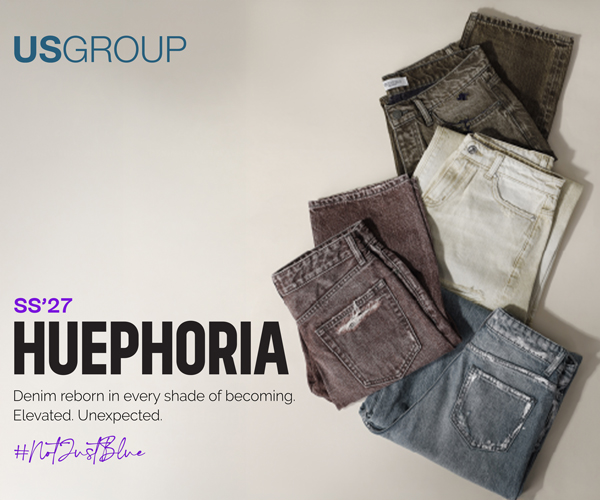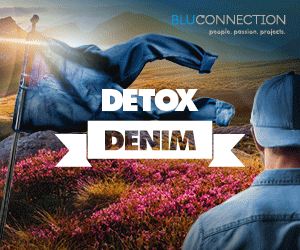Miles Johnson on why true denim sustainability demands collaboration, not competition

I’ve seen many changes in my 25 years of designing denim. Many of them absolutely necessary. We never even gave throwing chemicals and unctions at jeans a thought. Why would we? At the time, what things looked like was the most exciting criterion and therefore the most important. What it cost to the customer or the planet didn’t seem to be a problem.
Now, cost is a much more complex issue. In design, we struggle to find a balance. The responsibility often falls to us to make the right decisions from concept through to wash. What can we save and take away while keeping the product interesting? What is the impact of less sustainable products sold locally versus more sustainable garments shipped widely? I know I’m not the only one scratching my head about which is the right thing to do.
We are often guided by company, not personal, values. Morals that state belief in the cause and make commitments to cleaner processes and long-term strategies without asking too many awkward questions. Even better is a Mission Statement that acts as a guard rail to internal conversations and expensive decision making.
It wasn’t easy leaving Patagonia back in 2018 and feeling an industry-wide bleakness when it comes to environmental issues. Seven years later, progress is numbingly slow and sustainability still feels very open to interpretation.
So, has sustainability lost its meaning? Or have hard times and tariffs thrown all that aside? We are an industry and would cease to exist without profit, but does that absolve us of our obligations to future generations? Cost needs a broader interpretation as much as sustainability needs a narrower one.
Of course, we are all doing our bit, or would like to think so. Designing through a series of problem-solving lenses and trying to find better ways of doing things. Twenty-five years ago we could say that we didn’t know: the information was there but it wasn’t everywhere. Now, there is no excuse.
We like to think that every breakthrough is a step forward, but those uncommunicated, more expensive sustainable initiatives will often drop out to make way for volume-driving wins. Hundreds of denim-producing companies are competing for environmental popularity, while staying alive by selling a less eco product to their mass market. Perhaps, as with the car industry, it will take legislation to really change things, at which point it will be the people who are innovating now who will be ahead of the game.
But that is no excuse not to share intellectual property for fear of others running with it more successfully. The urgency of the situation will require a kind of hive mind. The courage Patagonia has shown in sharing ideas has done nothing to dent their profits. Someone asked me recently if Patagonia is still as serious about sustainability, because they don’t hear so much about it anymore. Maybe the press has moved on, or maybe no news is not abandoning core values. It involves huge marketing spends to tell customers what a great job you are doing. Instead, you could put that same money into eco innovation. Which can then be shared within the industry. Wouldn’t that be a greater benefit?
I assume that much of innovation could be shared, given that we all care so very much about our planet. But we are still mired in suspicion and uncomfortable with partnerships. So, for all our best intentions, from companies who want to do a better job, the bottom line is still the bottom line and we are yet to even secure 15% of production that is truly sustainable. If the next 25 years doesn’t address that, we may not have a market to sell to.
But let’s not lose sight of our other goal: denim; beautifully crafted, perfectly fitting and comfortably constructed. I have seen denim come in and go out of fashion. But it never goes away because at heart it is a practical fabric, founded in workwear. The challenge is to build on that and build in sustainability. To remain an indispensable product and an honest pleasure.
Photo: Tim Davis












